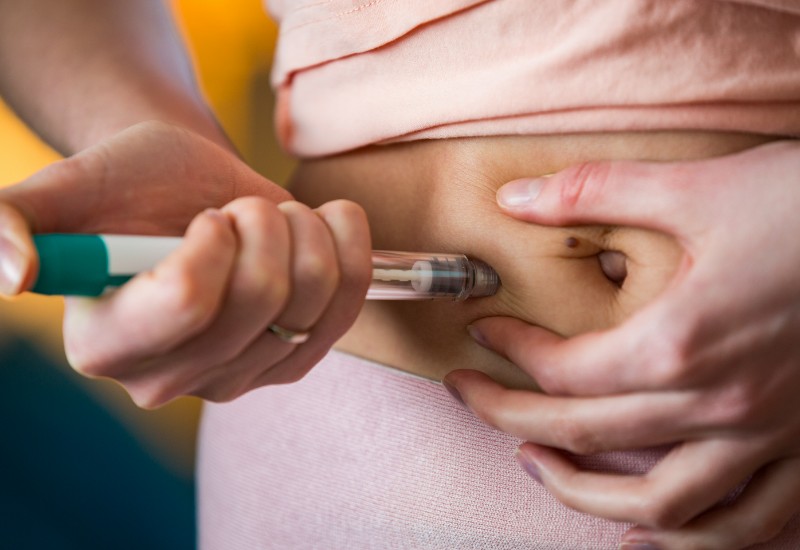Gender Reassignment Surgery (GRS) consists of operations that contribute to a person’s sex change.
In the UK, this type of surgery has increased 5 fold since the year 2000.
These procedures can be complex and can vary…in this article, we will go into detail about GRS, including the pros, cons and costs.
Let’s get into it.
What is Gender Reassignment Surgery?

GRS is a medical procedure or series of procedures that helps you transition from your assigned sex at birth to your identified gender.
This surgery is typically one component of a broader gender transition process, which may also include:
- Hormone therapy.
- Mental health support.
- Social changes (adopting a new name and changing legal documents).
Types of Gender Reassignment Surgery
The specific types of surgeries involved can vary widely depending on whether you are transitioning from male to female (MTF) or female to male (FTM).
Here are the main types of gender reassignment surgeries:
Male-to-Female (MTF) Surgery

This refers to when a male patient wants to transition to a female, they may go under the following procedures.
- Vaginoplasty – The construction of a vagina using skin and tissue from the penis and scrotum. May include labiaplasty (creation of the labia) and clitoroplasty (creation of a clitoris).
- Orchiectomy – The removal of the testes, often performed as a standalone procedure or as part of vaginoplasty.
- Penectomy – The removal of the penis, usually done in conjunction with vaginoplasty.
- Breast Augmentation – The placement of breast implants to create a more traditionally feminine chest appearance.
- Facial Feminisation Surgery (FFS) – A set of surgical procedures to alter facial features to appear more traditionally feminine. This can include rhinoplasty, brow lift, cheek augmentation, and jaw contouring.
- Voice Surgery – Surgical procedures to raise the pitch of the voice, often involving the vocal cords.
- Tracheal Shave – The reduction of the Adam’s apple to create a smoother neck profile.
Female-to-Male (FTM) Surgery

This refers to when a female patient wants to transition to a male, they may go under the following procedures.
- Mastectomy – The removal of breast tissue to create a more masculine chest, often referred to as “top surgery.”
- Phalloplasty – The construction of a penis using tissue from other parts of the body (such as the forearm or thigh). This is a complex procedure that may require multiple stages.
- Metoidioplasty – The construction of a penis using the clitoris, which has been enlarged through hormone therapy. This procedure is typically less extensive than phalloplasty and results in a smaller penis.
- Hysterectomy – The removal of the uterus, which may be performed as part of the transition process to align physical anatomy with gender identity.
- Oophorectomy – The removal of the ovaries, often done in conjunction with hysterectomy.
- Scrotoplasty – The construction of a scrotum, often involving the insertion of testicular implants.
- Urethral Lengthening – A procedure to extend the urethra through the newly constructed penis, allowing for urination through the penis.
Benefits of Gender Reassignment Surgery

GRS offers numerous benefits if you’re experiencing gender dysphoria, helping to align your physical appearance with your gender identity.
Here are some of the key benefits:
Alleviation of Gender Dysphoria
GRS can significantly reduce or eliminate the distress associated with gender dysphoria, improving overall mental health.
Aligning physical characteristics with gender identity can enhance body comfort and self-perception.
Improved Mental Health
You may experience a reduction in anxiety, depression, and other mental health issues post-surgery.
Feeling more congruent with your gender identity can lead to greater emotional stability and happiness.
Enhanced Quality of Life
Aligning your physical appearance with your gender identity often leads to increased satisfaction with life.
As a result, you can increase your confidence in yourself and your appearance.
This enhanced confidence and comfort in social settings can improve relationships with family, friends, and colleagues.
Personal Empowerment
GRS provides a sense of control and empowerment over your body and life decisions.
Successfully undergoing surgery can be a significant personal achievement and a milestone in your transition journey.
Leading to an overall better quality of life.
Risks and Considerations of Gender Reassignment Surgery
Here are some of the key risks and considerations:
Surgical Risks
As with any surgery, there is a risk of infection at the surgical site, which may require antibiotics or additional medical intervention.
Excessive bleeding during or after surgery can occur, sometimes necessitating blood transfusions.
There is also a risk of developing blood clots, which can lead to complications such as deep vein thrombosis or pulmonary embolism.
Some people may also have adverse reactions to anaesthesia. This includes allergic reactions, respiratory issues, or cardiovascular problems.
Postoperative Complications
You may experience delayed or problematic wound healing, leading to further medical treatment.
Scarring occurs from GRS which may be aesthetically concerning or cause physical discomfort.
There is also a risk of nerve damage, which can lead to numbness, pain, or loss of sensation in the affected areas.
For MTF surgeries, there may be complications related to urinary function, such as difficulty urinating or incontinence.
Psychological and Social Considerations
Surgery can be emotionally taxing.
Therefore, it’s important to have realistic expectations about the outcomes of surgery.
While GRS can significantly alleviate gender dysphoria, it may not resolve all personal or social issues.
Strong social support from family, friends, and support groups can be crucial for emotional well-being during and after the transition.
Long-Term Health Considerations
Many patients will need to continue hormone therapy after surgery, which requires regular medical monitoring and potential adjustments.
Regular follow-up care is necessary to monitor for long-term complications and ensure overall health.
Financial Considerations
GRS can be expensive, and not all insurance plans cover the procedures. It’s important to understand the financial implications and explore insurance coverage options.
You may want additional surgeries for optimal results, adding to the overall cost.
Legal and Administrative Considerations
Updating legal documents (e.g., driver’s licence, passport, birth certificate) to reflect the new gender identity can be a complex process and varies depending on the country you live in.
Navigating the workplace and social environments post-transition can present challenges, and you should be prepared for varying levels of acceptance and support.
Costs of Gender Reassignment Surgery
In the UK, the cost of gender reassignment surgery can vary significantly based on the type of surgery and whether it is accessed through the NHS or privately.
Here is a selection of the varying costs associated with GRS:
Private Treatment Costs
Here is a selection of some of the surgeries relating to GRS and their estimated costs:
- Vaginoplasty – Typically costs between £10,000 and £20,000.
- Breast augmentation – Generally ranges from £5,000 to £8,000.
- Phalloplasty or metoidioplasty – This can be significantly more expensive, often around £60,000.
- Double mastectomy – Usually costs between £5,000 and £8,000.
Additional Costs
Beyond the surgery itself, there are other potential costs to consider:
- Initial Assessment – Around £200-£300 for a consultation with a specialist.
- Travel and Accommodation – Costs for travelling to and staying near the hospital.
- Post-Op Care – Expenses for aftercare, which might include walking aids and taking time off work.
These procedures will usually require a deposit and may also offer instalment plans. For more information on rhinoplasty pricing, you can check out our surgery prices.
Gender Reassignment Surgery with New Birkdale Clinic
Your journey is unique when it comes to GRS.
This is why it’s important to always follow the advice of your surgeon as they will know and understand your needs and requirements better than anyone else.
At New Birkdale Clinic, we help you with a number of treatments relating to GRS.
Our world-class surgeons are here to guide you every step of the way along your GRS journey.
Contact us today and get started.
